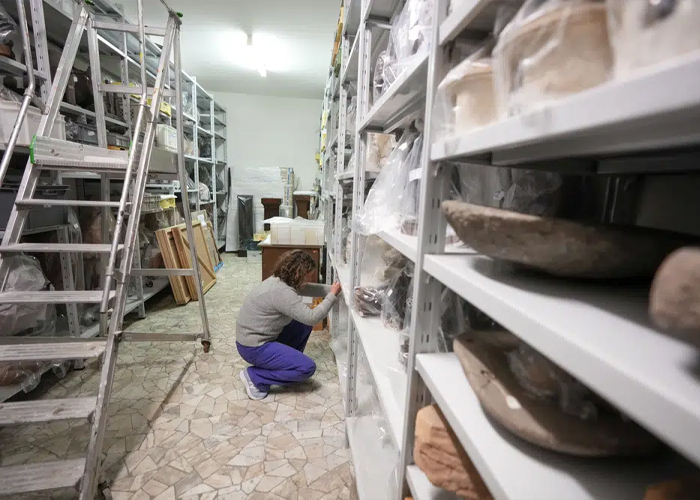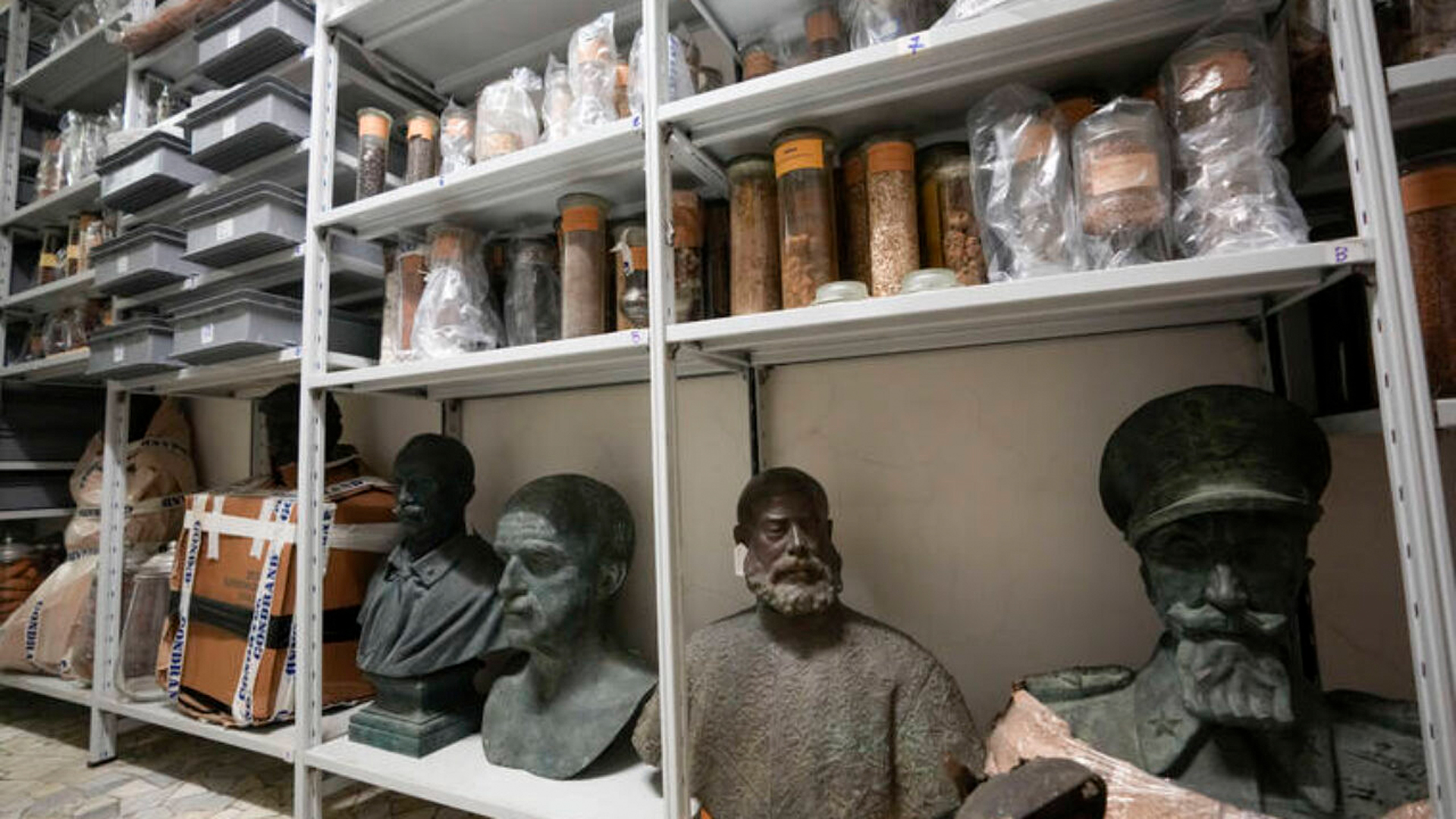Italy has begun the process of reckoning with its colonial history in North Africa and the active part it played in looting artworks and exhibiting them in its museums. For over a year, a combined team of university scholars, researchers, and museum directors have been cataloging the collections in the 498 Italian state museums to understand exactly what they contain – and what in specific was looted.
The move comes in the wake of a movement spanning Europe and the Americas aiming to return cultural artifacts to their countries of origin. Museums across the world have mainly reached a consensus that they can no longer hold onto artworks that were acquired as a result of violence, colonial occupation, looting, or war.
The Vatican recently returned to Greece three fragments of the Parthenon Marbles that it had in its possession for two centuries. “There’s the Seventh Commandment: if you steal something, you have to give it back,” said Pope Francis.
Italian dictator Benito Mussolini and his fascist regime ruled Italy between the 1920s and 1940s. When speaking colonially, Italy is associated with North Africa, specifically Eritrea, Ethiopia, Libya, and Somalia. Albania, in Eastern Europe, was also a protectorate. The country’s colonial empire began in the 1800s, and Mussolini heavily sought to expand its borders. Although unsuccessful, Italy was forced to relinquish all of its colonies after World War II, although its final administration of Somalia only ended in 1960.

“Even though we had a more ephemeral colonial history than Britain, Germany, France or Belgium, the problem obviously cannot be underestimated by us,” said Massimo Osanna, the Culture Ministry official in charge of museums, in a recent conference on restitution. “We must rethink the collections, rethink the institutions and rethink the transparency of the narrative, as well as case-by-case restitutions.”
Osanna has directed a group of museum directors and academics, headed by Christian Greco, director of the Egyptian Museum in Turin, with the audit. The committee has chosen a dozen graduate students who are helping curators go through their storerooms and archives to understand what’s there.
In an interview, Greco acknowledged the issue of restitution and Italy’s colonial past remains delicate. He said he had expected resistance from his team as they sent out a questionnaire asking museums if they held objects that may have been acquired in ways that would be considered unethical or improper today.
“I was expecting people to be afraid, but actually the contrary is happening, people are very excited that this is happening,” he said, adding that 30 museums with substantial collections have already responded. The aim is to produce a report to the Culture Ministry by mid-year, and to then organize an international symposium in the second half of the year to discuss the findings.
Asia London Palomba
Asia London Palomba is a trilingual freelance journalist from Rome, Italy. In the past, her work on culture, travel, and history has been published in The Boston Globe, Atlas Obscura, The Christian Science Monitor, and Grub Street, New York Magazine's food section. In her free time, Asia enjoys traveling home to Italy to spend time with family and friends, drinking Hugo Spritzes, and making her nonna's homemade cavatelli.

